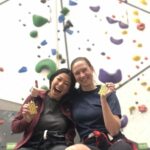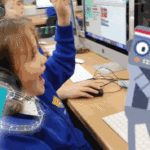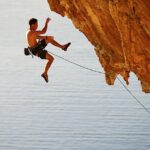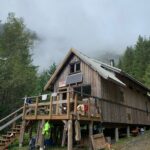Hello!
My name is Anju, I go by the pronouns she/her, and I am in my second year of the BEd program at UVic! I come from a small island called Salt Spring Island which I have called home for the past 14 years! Growing up on an island and constantly being surrounded by nature, I have a big love for anything to do with the outdoors – kayaking, climbing, backpacking, camping, etc.
Because the outdoors have had such a significant impact on my life, my interest in terms of education lies in outdoor education. I think it’s interesting to think about technology and its presence in education, especially outdoor education, because it seems counter intuitive to connect technology and the outdoors together. I’ve always been a big advocate for “unplugging”, and off the grid ways of living because that is what I have experience with, and what I want to promote. That being said, I’m big on photography, and, a camera is obviously a piece of technology. I’m also a fan of showing off my adventures through social media platforms, so I can’t really trample the idea of technology when I use it so much. I’m curious to learn whether technology can positively contribute to outdoor education, without a student’s relationship to their natural surroundings and experiences being taken away.
Nowadays, there’s so many sources of technological nature education. Something I use quite often is iNaturalist, a plant ID app that allows you to upload a photo of nature and helps you identify it. I also have an app called Merlin Bird ID, which helps identify birds from their calls. My all time absolute favourite app is AllTrails, an app full of trails, hikes, beaches and camping areas.
These are proof that technology can be used creatively and why I do think that technology can play a large role in nature education and education in general. While I’m privileged to have such great access to the outdoors and nature, others may not have that chance, and I think that technology is an innovative and useful way to show that there is so much out there in the world. Netflix and other streaming services now have a wide range of nature documentaries; there are so many sources out there that allows for outdoor experiential learning that may not be possible without the help of technology. It allows accessible learning, connections with many things and other people, and provides a great deal of fun and entertainment! As I learn more (through this course and more!) and as technology advances each year, I am excited to see where it takes place in the outdoor education world and what it does/will do in the future!





